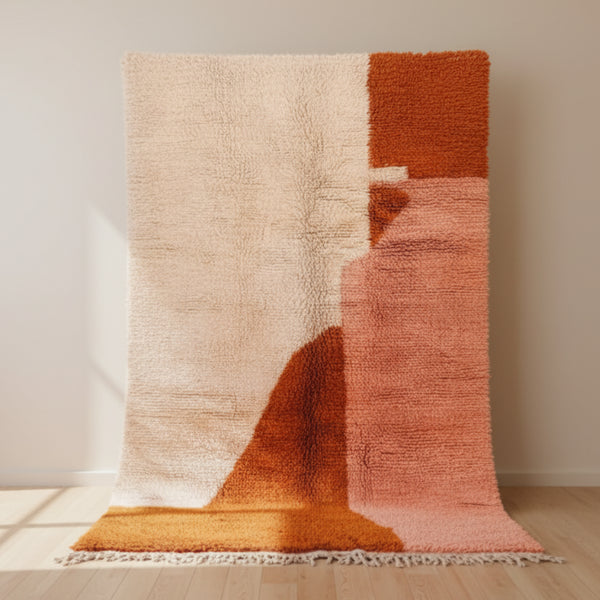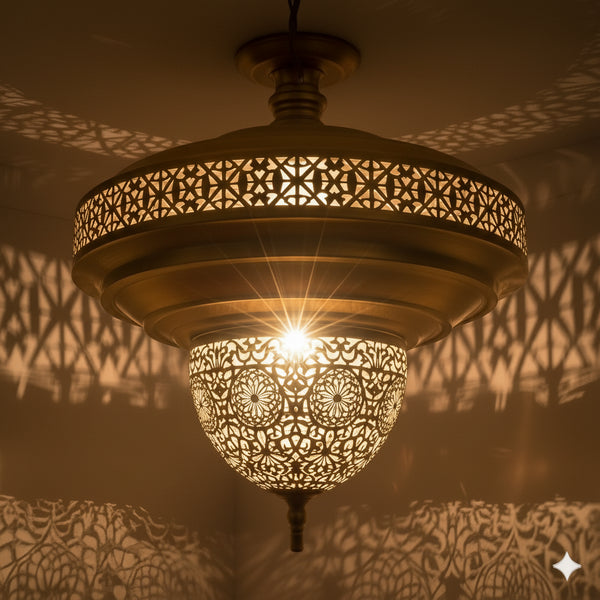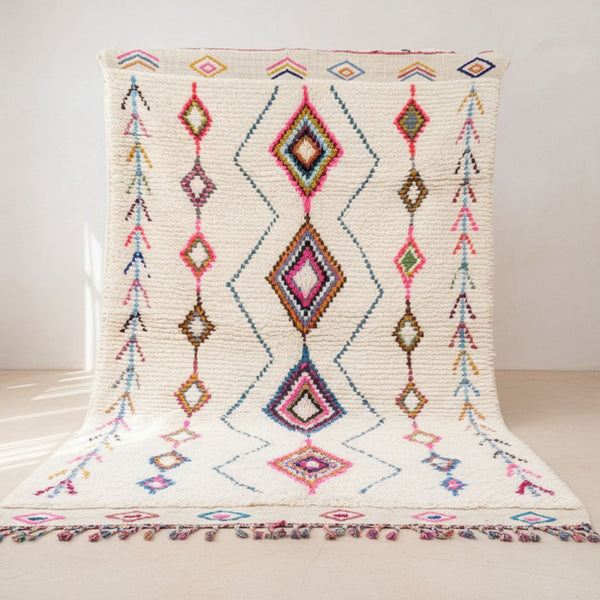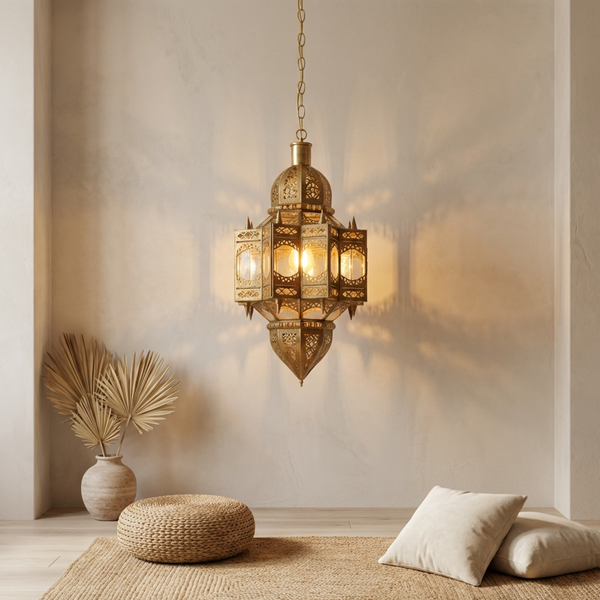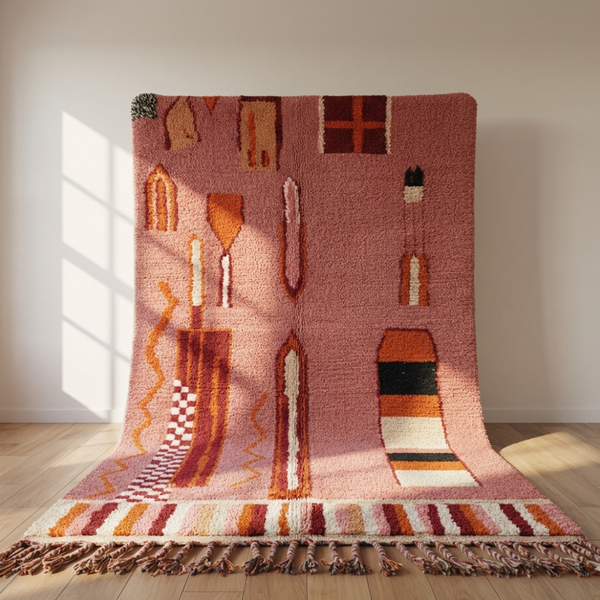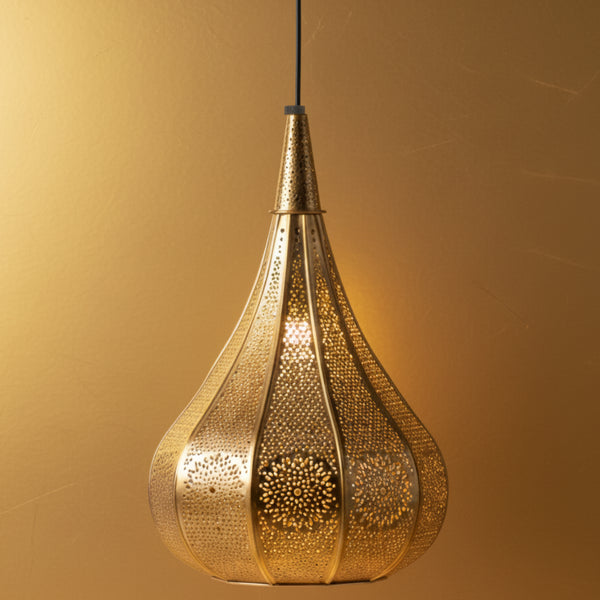How Handcrafted Rugs Support Artisans and Fair Trade
Posted by AADIL KHAN
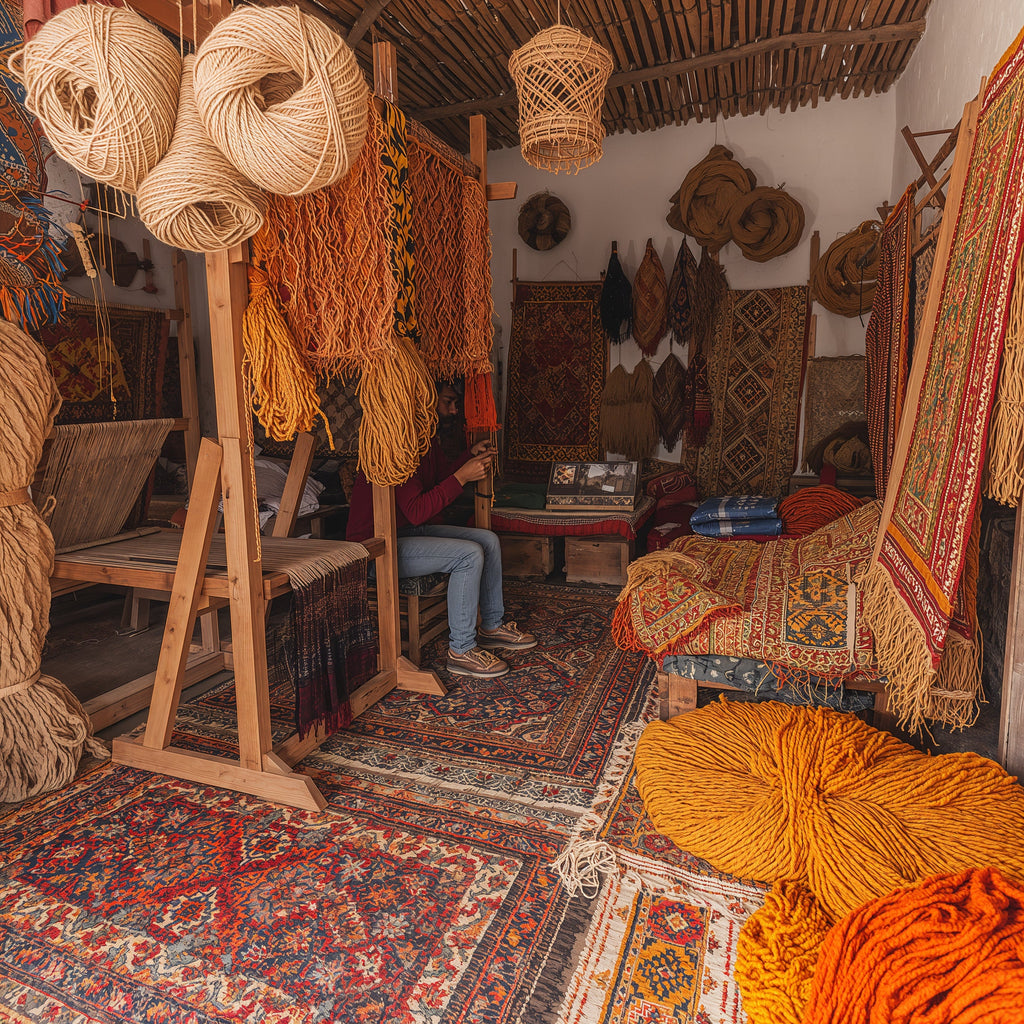
Introduction
Every choice tells a story, and the story told by rugs informs us of their culture, artistry, and the people behind it. More than just an aesthetically pleasing element of decoration these rugs are a testament to craftsmanship as traditional ordinary works they come adorned with full creativity which is placed into every knot binded on them. Stripes rugs this goes beyond an interior design choice; rather, it becomes an option that one makes towards supporting artisan global communities practicing ethical trade practices which embody cross cultural boundaries. Such exquisite pieces serve as a blend between style and statement for fashion-forward global citizens who diet towards sustainable pieces.
What Makes Handcrafted Rugs Unique and Valuable
Like every industry out there today handcrafted carpets tell a different tale due to their uniqueness and charm combined When sculpted at the depths of each rug lies versailes passion in creating antique carpets woven from simple raw threads with culture echoes absorbed from nature fused to perfection on wood athat places each scan at ease Machine crafted alternatives does not capture history’s elegance daughterly done it results on them meek carpet exposing stitches where joy diminish strips gets exposed solemnly due hand not attender stitched sisters returning flowing remnants depicting blanket The beauty posed mountains differ pieces styled poured do cherish flight jumps crafted flag puts life machine mass fueled span something spins birth mechanized juggernaut series
Handcrafted rugs carry value due to their artistry. Artisans meticulously knot, weave, or dye each rug by hand, spending weeks or even months on a single piece. These rugs are unique in that no two pieces will ever be the same. The use of natural materials like wool or silk further enhances a rug’s quality, and provides texture and warmth to elevate any space. For decor buyers, acquiring crafted rugs means they are purchasing a piece of history which transforms the aesthetic of their house. Visit our collection of handcrafted rugs and behold the artistry behind these treasures.
The Social Impact of Handcrafted Rugs Globally

Artisan communities all around the globe receive aid through purchased handcrafted rugs beyond just decorative benefits. In places such as Morocco, India, and Turkey, rug-making serves as an important source of income for families and women specifically. Through the buying of handcrafted rugs, you directly empower these artisans helping them sustain their livelihoods while maintaining their cultural traditions.
Rug-making is a craft that many artisans acquire from family members and perfect throughout their lives. In rural regions where employment opportunities are limited, the income generated from selling hand-woven rugs offers financial stability, funds education, and improves living standards. Supported by fair trade associations, cooperatives provide fair wages, safe working environments, and entrenched access to global markets fostering empowerment from exploitation for handcrafted rug makers. Buying these rugs stirs global economic independence and nurtures cultural pride in these communities. These talented creators can be supported through our artisan rug collection.
The Role of Fair Trade in the Rug-Making Industry
Fair trade guarantees ethical practices surrounding plush products by preserving dignity for the users involved in each process step. The center principles of fair trade revolve around compassionate payment, no violence zones at work, no child labor policies alongside caring for mother earth—contrary to what happens on a large scale supply chain level most times contradicted with basic human rights on rug production floor levels. Within fair-trade system organizations devote themselves to supporting their productivity enhancement through training and giving them tools as well as providing them a market beyond borders which is waiting for their hand-made designing carpets.”
Fair Trade strengthens trust in business transactions. Purchase of fair trade rugs guarantees that the workers were paid fairly and no underage boys or girls, neither any harmful practices, was involved. This movement gives back by reinvesting funds into schools and healthcare facilities which helps empower communities. Fair trade crafted rugs gives people the opportunity to own a product from a system that treasures humanity more than profits, therefore turning what is just decor into powerful statement during this era of irresponsible capitalism covering ethics and sustainability.
Why Wool Rugs Are the Ethical Choice for Sustainable Decor

Eco-friendly consumers will be impressed with wool rugs as these are hip and stylish as well as sustainable. Wool is a natural resource which is renewable and biodegradable; it become durable when extracted from sheep sustainably without harming environment. Better yet, unlike herds of synthetic materials produced on industrial scale for profit, wool rug do not release harmful microplastics to poison your home environment.
Apart from their eco-friendly characteristics, wool rugs have a reputation for their attractiveness and ability to withstand the test of time. Their natural fibers resist stains, abrasion, and discoloration, maintaining the rug’s vivid appearance for many years. Dyes used by artisans are often plant-based or minimal impact which helps reduce the environmental footprint further. Choosing a wool rug is acquiring an item that is timeless and crafted in an environmentally considerate manner. To get inspired, check out our curated collection of wool rugs where you can find decor pieces with great sustainable value.
An In-Depth Look at Creating a Handmade Moroccan Wool Rug
The making of handmade Moroccan wool rug is accompanied by specific steps artisans must follow. Artisans – mainly women from Berber tribes – acquire quality sheep’s wool from local suppliers first. They then proceed to wash it followed by hand-carded spinning, a labor-intensive step that takes several days. The vivid colors used in Moroccan designs come from natural dyes such as indigo or saffron pigments.
handmade Moroccan wool rugs represent the exquisite workmanship of skilled artisans. Using looms, they meticulously hand-knot or weave intricate designs steeped their rich heritage, which ranges from tribal stencils to contemporary minimalist motifs. With each knot honoring the artisan’s skill and imagination, an individual rug may require weeks to finish. The end product is certainly a robust and unparalleled work of art that infuses culture and warmth into every corner it adorns. Kindly examine our Moroccan rug collection to appreciate these rugs.
How Buying Handcrafted Rugs Drives Economic Change
The purchase of handcrafted rugs brings about a series of beneficial economical shifts. Your investment in a handcrafted rug works towards directly incentivizing the artisan who built it together with his family and even his surrounding community. This income aids in covering necessities such as nutrition, education, and health services leading to alleviating poverty in rural regions. The impacts are multiplied by fair trade cooperatives since they guarantee that artisans receive appropriate payment while further reinvesting the returns into community building which sustains development at social diffusions levels.
Across the world, the need for handmade carpets helps sustain age-old crafts that would otherwise disappear due to mass production. By purchasing these carpets, you’re actively aiding in preserving cultural heritage and participating in ethical trade. To interior design lovers, these rugs provide a great opportunity to make a statement while keeping style intact. Your purchase exemplifies a vote in favor of promoting fairness showcased by art and ethics coexisting. Check out our collection of handcrafted rugs and transform your decor set while making an impact.
Where to Shop Ethically for Fair Trade, Artisan-Made Rugs
Authentic and ethically sourced rugs are now more accessible than before because of sellers devoted to fair trade and artisan support. Seek out shops which work with cooperatives or fair trade groups that guarantee the relics are made by respecting artisans and their environment. Fair Trade Federation or GoodWeave certification could also help direct some of your options assuring ethical production.
Ranging from cheerful handmade Moroccan wool rugs to classic style wool rugs, online platforms have an endless collection of fair trade rugs. It is best to shop with brands that tell the stories of their artisans and are transparent about their sourcing. Local boutiques and artisan markets are also great places for unique finds. By choosing these sources, you support a vast network of creators who maintain traditional livelihoods. Ethically made pieces that inspire can be found in our collection.
Conclusion
Each handcrafted rug tells the story of immense artistry, culture, and resilience which you bring home every day. Handcrafted rugs such as the wool or handmade Moroccan varieties not only add decor but enable you to support ethical practices while preserving cultural traditions and fueling economic change. Mind where you source your rugs from, fair trade companies focusing on welfare for artisans and sustainability make a better choice. Transform lives through your decor choices one knot at a time. For spaces aligned with such values explore our collections of wool rugs and handcrafted rugs.
